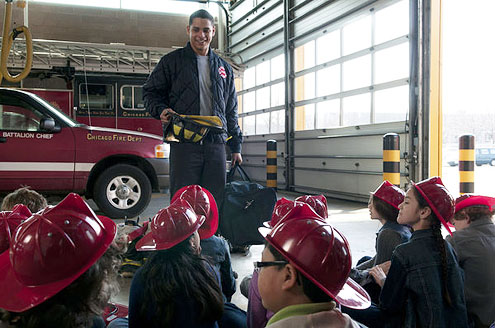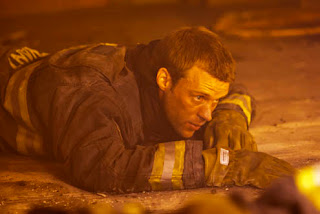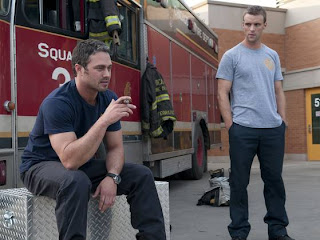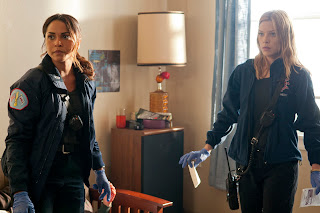Do you remember ER?
I mean, statistically most of you should have some memory of it at least,
because it was on for approximately forever. In case you don’t though, it was a
show about a bunch of implausible attractive doctors having soap operatic life
problems in and around the emergency trauma center at a fictional hospital.
Most of them were doctors or nurses, and the rest were administrators or loved
ones. A real workplace soap.
Meet Chicago Fire.
He’s ER’s less interesting younger
brother, here now that ER has gone up
to the great syndication in the sky to capitalize on your mild attention and
desire to see something interesting-ish while you drink a box of wine on
Wednesday nights and try to forget your crappy job for a while.
Oh, that’s just me? Awesome.
Anyway, this is all just a way to explain that Chicago Fire, though staffed by young
and extremely attractive people, is boring as all get out. I mean it. Sure, you
have Jesse Spencer, Tyler Kinney, Lauren German, and Eamonn Walker, but you
also have no interesting or original storylines, and a general feeling of
apathy. There’s nothing here we haven’t seen before.
Just to get everyone up to speed, Chicago Fire is a new hour-long drama for NBC. It’s centered around
two young firefighters: Lieutenants Casey and Severide.
They don’t like each
other, because they’re both suffering under the guilt of a colleague’s death. I
think. I don’t know, this show was inordinately hard to pay attention to.
So Casey and Severide argue, there are some fires, other
people show up and also fight the fires, there are some paramedics who do
something medical and get in trouble—the whole thing felt very half-assed.
Where was the drama, people? I mean, we have firefighters
out there risking their lives, and you can’t make me manage to catch more than
half the plot? For starters, there were too many individual fires, and too many
specific characters for me to have any idea what was going on. But more than
that, it just felt like the show wasn’t trying.
Both of the protagonists are young white male stars with a
chip on their shoulders, and strong feelings about how to run a team. Their
boss is played by Eamonn Walker, who once again fits into the “wise black man”
stereotype. He’s there to dispense wisdom and tell them that they’re going too
far, but he never actually does anything. He’s just there to make
sort-of-profound statements and speeches.
There is some racial diversity, but it’s notable that the
main characters we are supposed to care about are all white, and the one black
character who was given substantial screentime was both light skinned, and had
a storyline revolving around his athletic prowess. Sigh. NBC, feel free to grow
up any day now. (Though I do hold out hopes that his character will get better.
Charlie Barnett is a great actor, from what I can see.)
The real cake-taker, though, was the female characters.
There are only two women on the show who aren’t wives or girlfriends (or
mothers), and both of those women are paramedics. Now, this isn’t a problem in
and of itself. I have met paramedics, in fact one of my college roommates
became an EMT.
But I find it objectionable that the only two female
characters on the whole show aren’t involved in the “manly” firefighting,
they’re relegated to a job that, while dangerous, is more feminine. The caring
job.
This just strikes me as silly, because it needlessly
perpetuates gender stereotypes. Women can be firefighters, and there are lots
of male EMTs. It’s simplistic and annoying to insist otherwise.
Overall, I think it comes down to a lack of effort. NBC
wanted a show to follow Law and Order: SVU
on Wednesday nights, and it didn’t bother to insist that the show be groundbreaking,
or even interesting.
So, yeah, Chicago Fire
is okay. But that’s all it is. Just okay.
 |
| Chicago Fire airs on Wednesdays at 10pm on NBC. |




No comments:
Post a Comment